When it comes to feeding these small, energetic creatures, one might wonder, “What is the best chipmunk food?” In the wild, chipmunks are not fussy about their diet. Vegatation, insects, seeds, grains, fruits, and vegetables – all these form part of their preferred nibbles. However, if there was a culinary king among chipmunk food, it would probably be nuts.
Chipmunks and Their Love for Tree Bounty
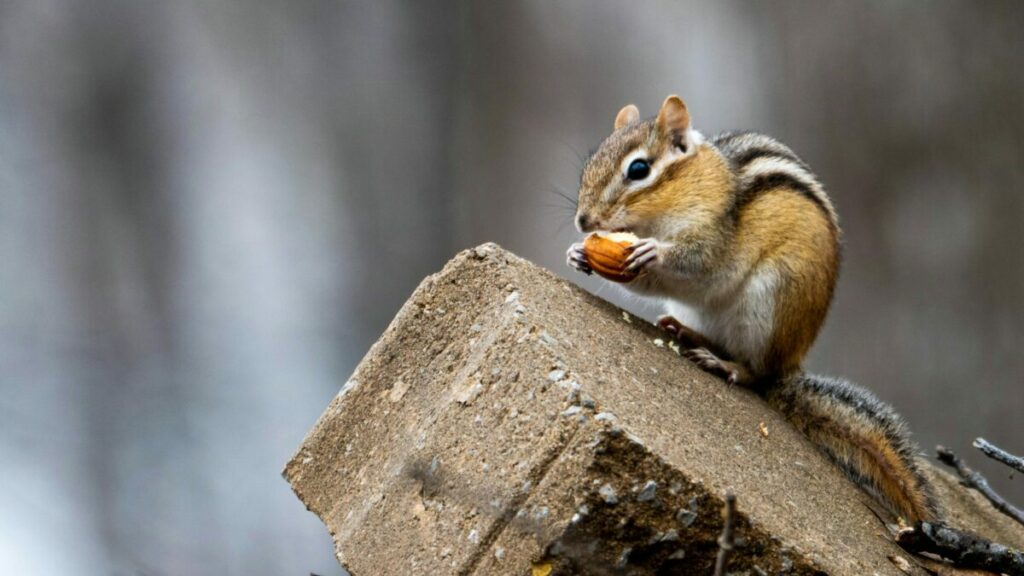
At a glance, a chipmunk’s eating habits may not be evident. These creatures are continually foraging for food or storing it away in their burrows. Thus, catching them enjoying a meal can be a rare spectacle. However, when they do venture to dine, trees often become their go-to pantry.
Chipmunks are essentially ground dwellers, but their love for good food takes them to heights rarely ventured. Be it nuts hanging from towering branches or seeds nestled in evergreen cones – nothing is too high for our furry friends.
Why Chipmunks Prefer Nuts
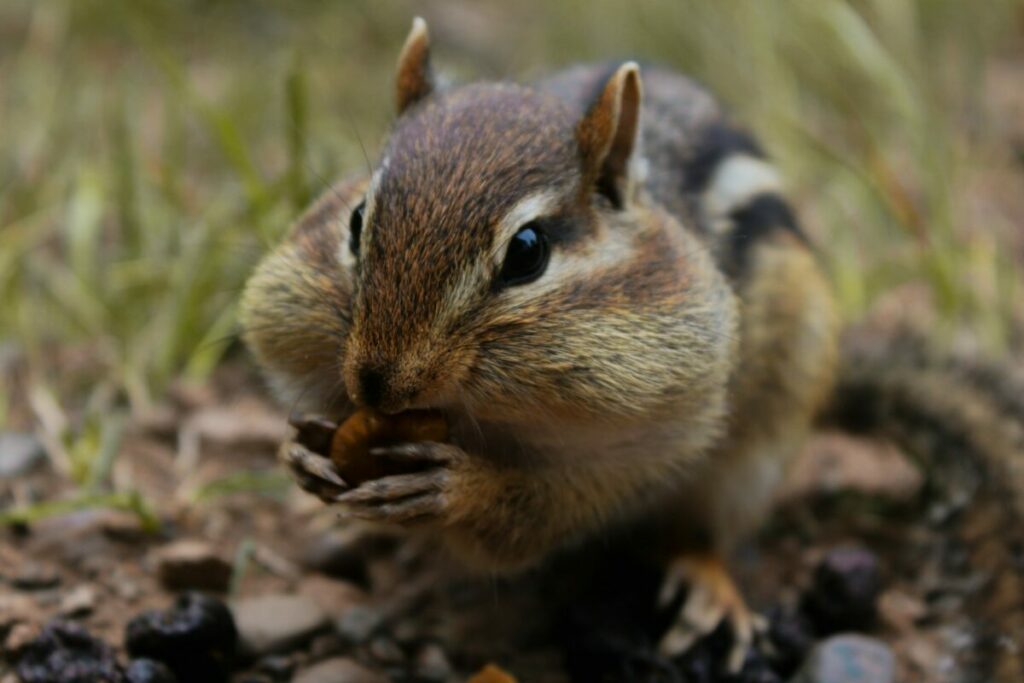
Feasting on nuts benefits chipmunks in more ways than one. Nuts, with their hard shells, are an effective natural dental plan for these creatures, helping to maintain their tooth length. Such a dietary requirement becomes particularly vital when raising a chipmunk as a pet.
Chipmunks’ Show of Possessiveness
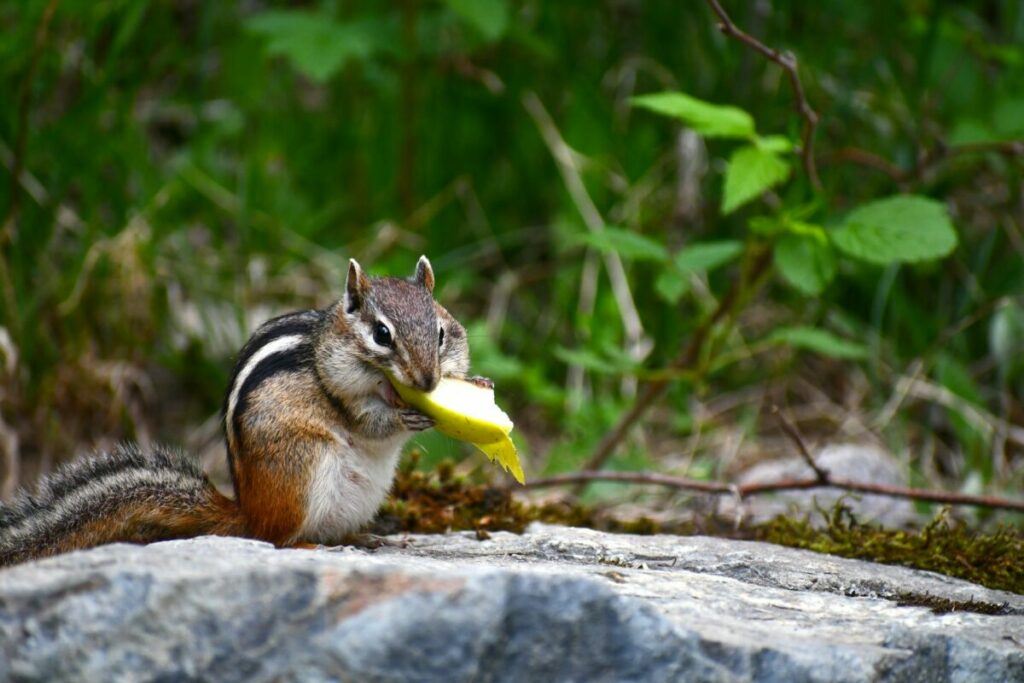
Find a tree laden with mature cones and chances are, a chipmunk has claimed it. Intruders beware! These tiny creatures can display surprising aggression in protecting their food supplies.
See Related: 7 Effective Chipmunk Traps for a Pest-Free Garden
Unusual Chipmunk Food Choices: Rose Hips
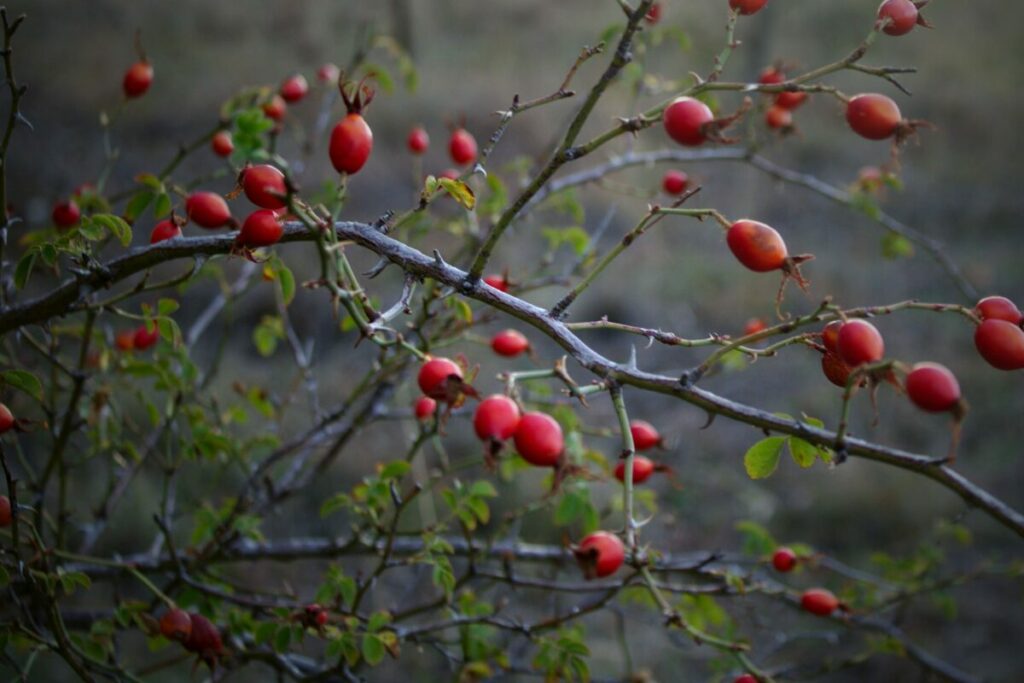
Plentiful during the latter half of summer and early fall, rose hips have won a special place in chipmunk diets. Once they’ve picked one, these creatures often seek a favourite spot to relish their snack, frequently resulting in a beautifully decorated rock garden of uneaten rose hip pieces.
The Downside of Chipmunk Feeding Habits
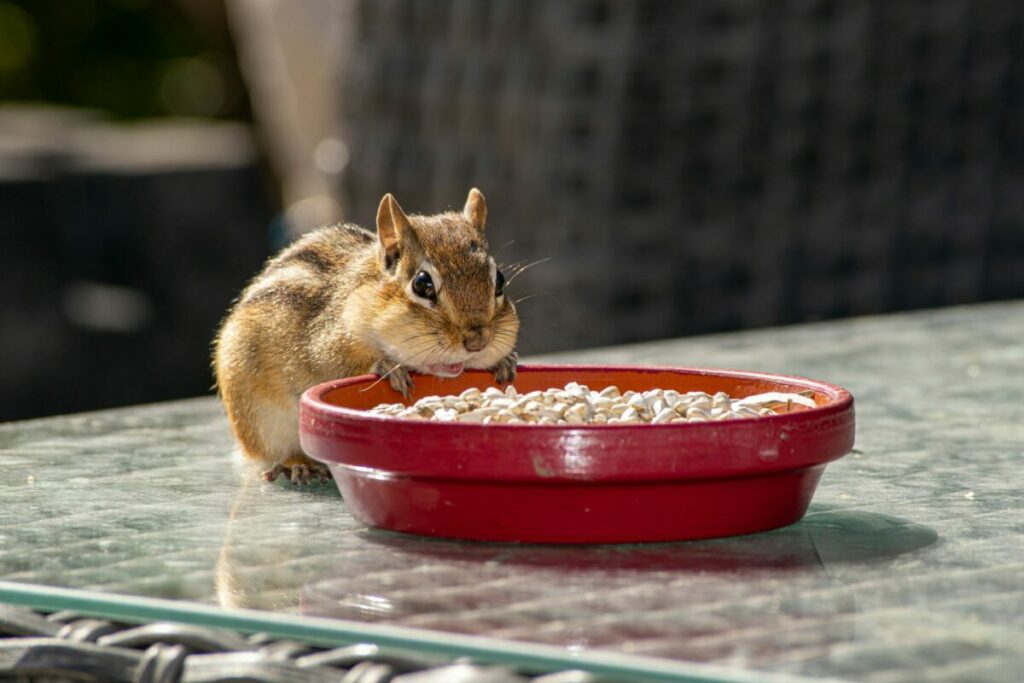
Despite their cuteness, chipmunks can often cause a nuisance due to their eating habits. Their fondness for corn patches and bird feeders can become troublesome. Apart from munching on these, they also possess a penchant for songbird eggs, disturbing the avian life in the area.
Feeding Chipmunks: A Handout Approach
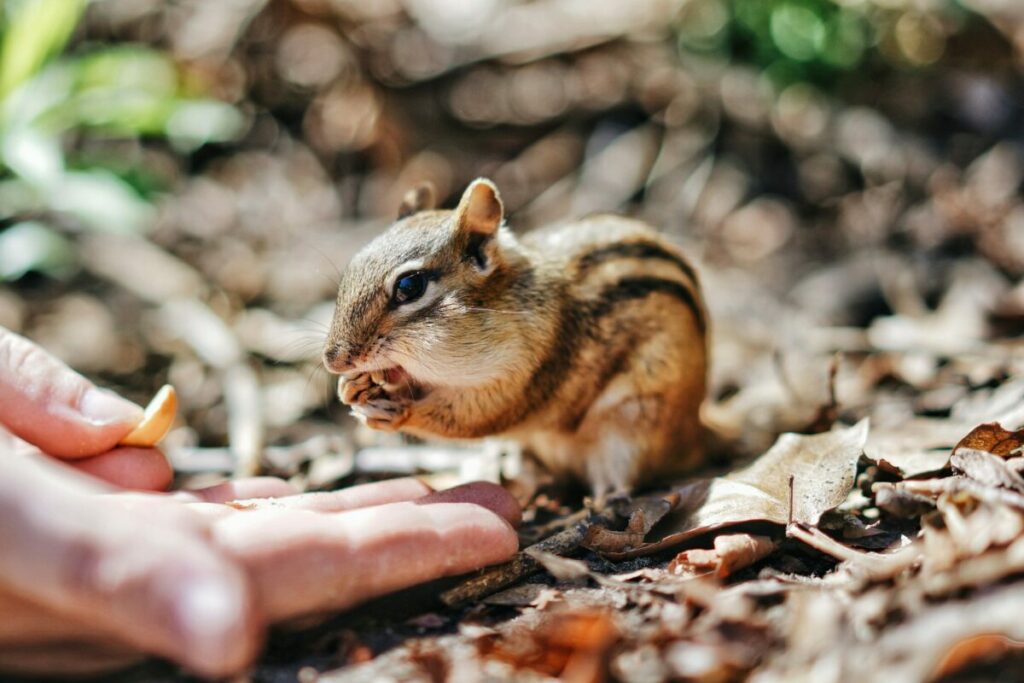
Chipmunks that are accustomed to human presence might willingly accept a food handout. Here, it becomes crucial to ensure we are handing out food that won’t harm these creatures. Consumables high in salt or sugar content can adversely affect their health.
Offerings that chipmunks would typically enjoy include:
- Nuts (cashews, almonds, peanuts – unsalted)
- Fruits (apples, pears, plums)
- Veggies (squash, cucumber, potatoes)
- Seeds (pumpkin, watermelon, sunflower)
Although chipmunks enjoy delving into these munchies, their varied diet means they can thrive in a multitude of habitats.
Wrapping It Up
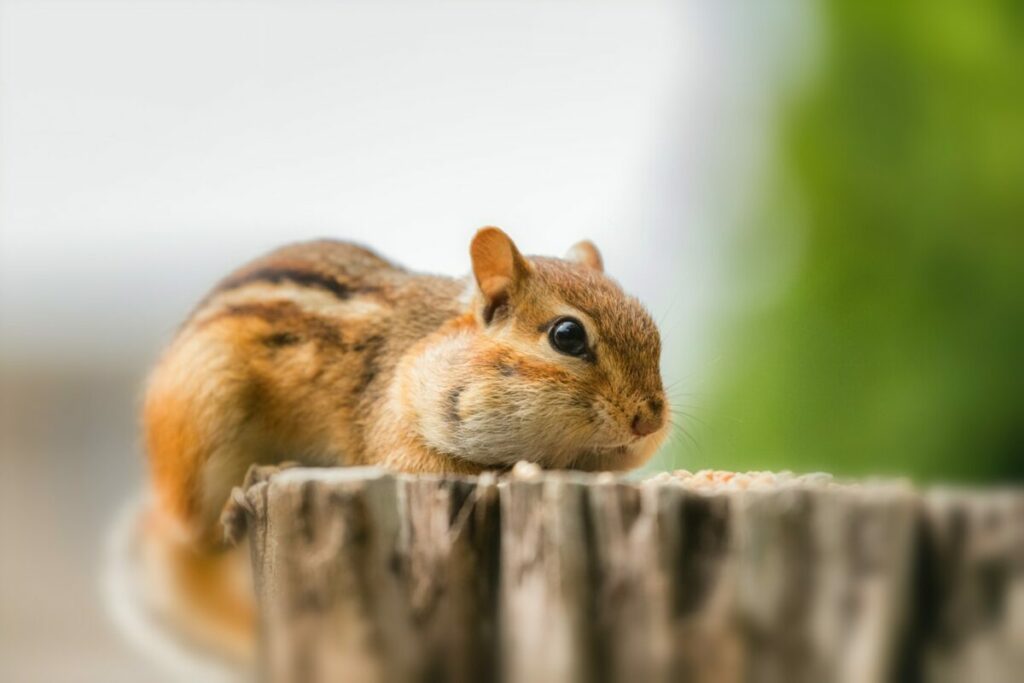
Chipmunks, with their unfussy eating habits, are agile survivors. From trees to the ground, from nuts to rosehips, they make the most of their environment to find food that not only sustains them but also keeps them healthy. In handing out food to these creatures, we must ensure it’s something they’ll enjoy and something that won’t harm their well-being.